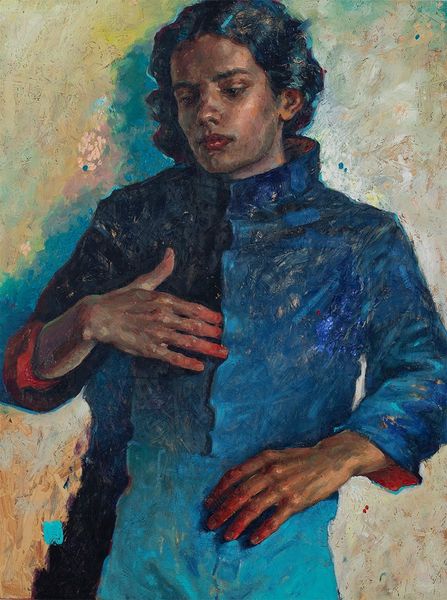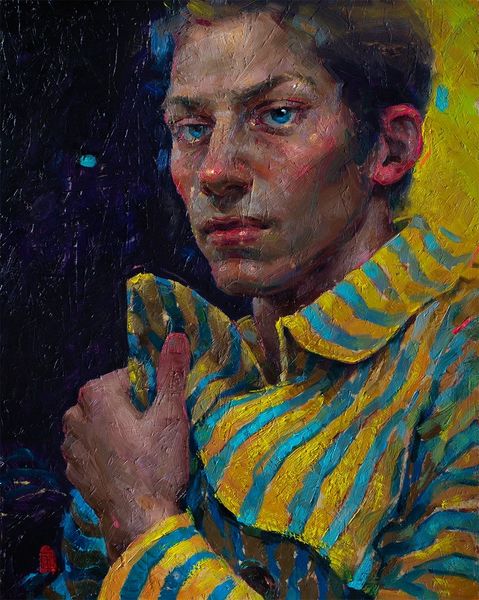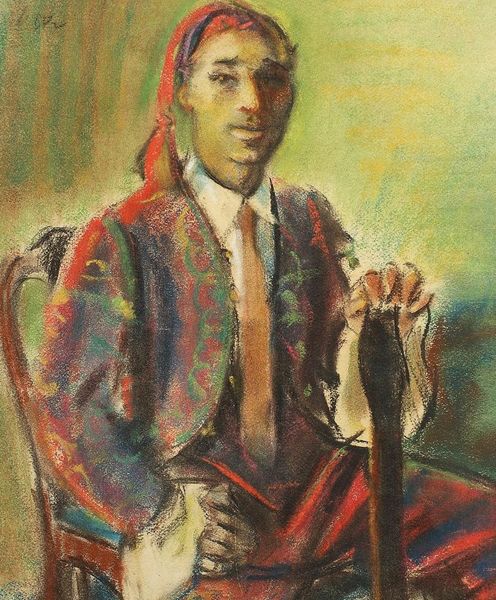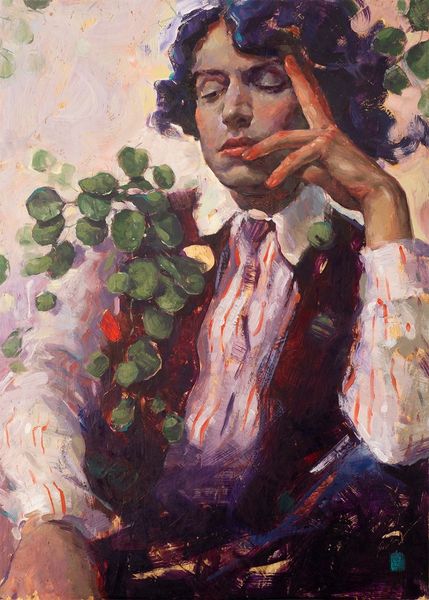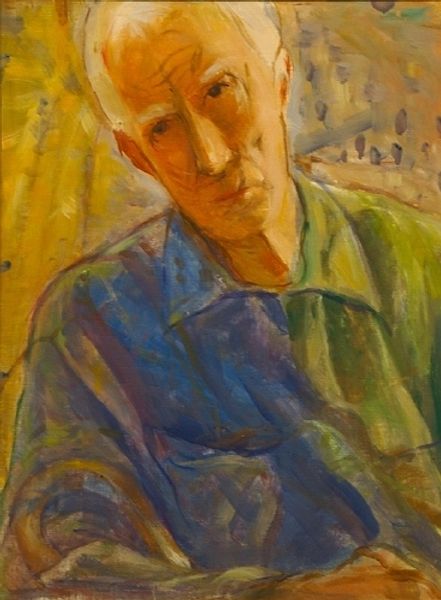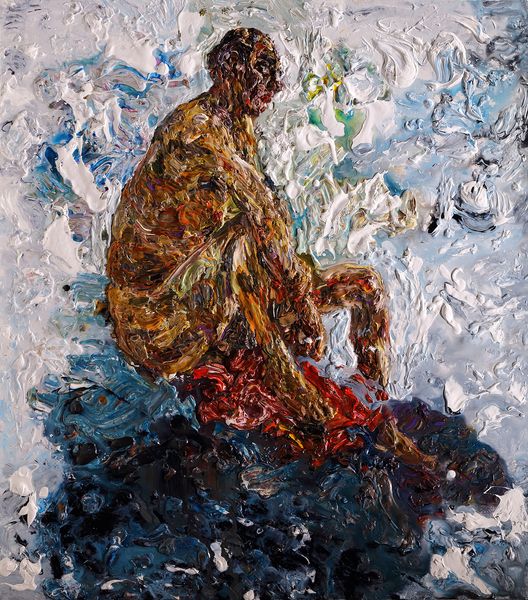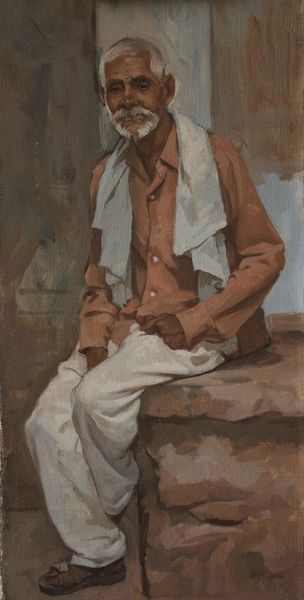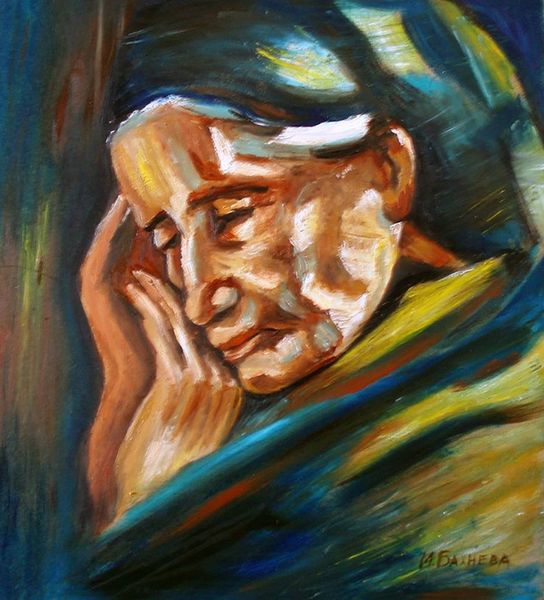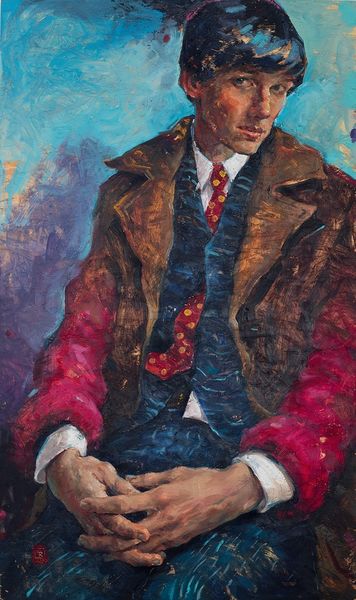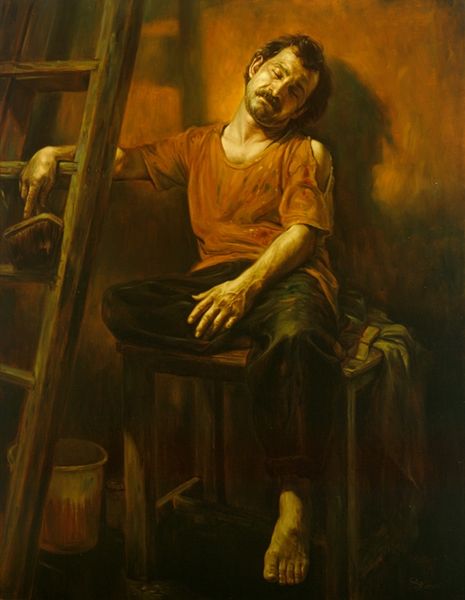
oil-paint, impasto
#
portrait
#
figurative
#
oil-paint
#
oil painting
#
impasto
#
neo expressionist
#
acrylic on canvas
#
neo-expressionism
#
expressionism
#
portrait art
#
expressionist
Copyright: Modern Artists: Artvee
Curator: Looking at Tania Rivilis' piece titled "Ive Changed My Name So Often," I'm immediately struck by its boldness, the confidence of the brushstrokes. Editor: Yes, there's an undeniable energy. The thick impasto application of the oil paint creates a very tactile surface, doesn’t it? Almost sculptural. It gives the portrait a tangible presence. Curator: Absolutely, and that physicality is so key to understanding neo-expressionism. The rawness of the paint becomes a form of rebellion against established artistic norms. The subject isn't just represented; they're almost conjured through the materiality. It echoes the broader societal shifts toward greater individual expression in the latter half of the 20th century. Editor: The use of color is quite striking. The juxtaposition of the bright yellow background against the cool blues and greens in the figure's clothing and the hints of violet where the background meets what appears to be a seat. It's a visually jarring choice, wouldn’t you agree? A sense of unease with so much vibrancy. Curator: That unease, I believe, speaks volumes about the psychological exploration inherent in many portraits from this period. Identity itself became a battleground. And given the title "Ive Changed My Name So Often", we can see how that extends to this piece. Who are we looking at? What version of themselves are they presenting? The visual dissonance reflects a fragmented self. Editor: It is fascinating how the composition forces you to ask so many questions. There’s almost no neutral space for the eye to rest. The artist avoids all easy answers. Curator: I think that is Rivilis’ point. Neo-expressionism embraced the complex, the conflicted, even the ugly, as avenues toward truth. It serves as a powerful marker of art's evolving relationship to a society grappling with its own transformations. Editor: So, despite the somewhat restless color palette and vigorous application, there's still a grounded feeling of searching—almost hoping—for something stable within a turbulent and rapidly changing world. It’s compelling.
Comments
No comments
Be the first to comment and join the conversation on the ultimate creative platform.

